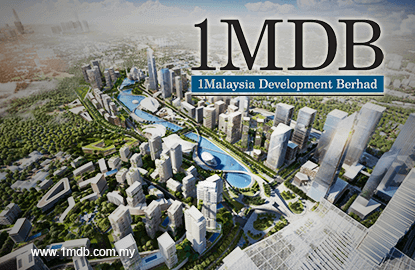
KUALA LUMPUR (Sept 9): 1Malaysia Development Bhd (1MDB) has defended that its audited financial statements, which has clearly described the amount and the purpose of the US$1.4 billion payments.
The strategic investment fund is rebutting an article quoting unnamed sources on Wall Street Journal (WSJ) today reporting that Abu Dhabi Investment fund International Petroleum Investment Co (IPIC) never received the US$1.4 billion from 1MDB.
In a statement, IMDB said: “We note that the WSJ does not name its source or provide any proof of the unproven allegations it is making, thereby seriously discrediting its sensationalist story.”
Referring to the WSJ article, 1MDB said it cannot speak on behalf of Aabar or IPIC, nor can it comment on the accounting arrangements of third parties.
“What we can confirm is that the 1MDB audited financial statements clearly describe the amount and purpose of the payments, which for the avoidance of doubt, are structured as a deposit (i.e a financial asset belonging to 1MDB and not an expense to 1MDB),” the statement said.
1MBD noted that based on those payments, it can confirm that IPIC did provide and continues to provide guarantees for the principal and interest of two tranches of US$1.75 billion bonds issued by 1MDB, with a total principal and interest amount of approximately US$5.5 billion.
The state-own strategic investment fund also confirmed that its external auditor Deloitte had made specific and detailed enquiries on these payments prior to signing off on 1MDB’s audited accounts.
“Deloitte has strongly defended its methodology and audit process of 1MDB at the Public Accounts Committee (PAC) hearings, a bipartisan select committee of the Malaysian Parliament.
“Accordingly, the WSJ is wrong to state ‘it isn’t clear what happened to the funds’, at least not from a 1MDB perspective,” 1MDB commented.
To recap, in 2012, 1MDB had issued bonds to raised fund for the purchase of power plants, and IPIC is the co-guarantor for the US$3.5 billion bonds. In return, IPIC was to receive options to buy a 49% equity stake in the power plants as well as collateral payment of US$1.4billion for the bond.
According to WSJ, the Auditor General’s draft report had mentioned that the payment went to IPIC’s subsidiary Aabar Investments PJS. However, the journal cited two sources saying that IPIC’s consolidated financial statements do not contain any reference to the receipt of the US$1.4 billion payment. It isn’t clear what happened to the funds, WSJ said.
In the statement, 1MDB also drew attention to the fact that WSJ’s article is based on leaked confidential information, and suggested the possible source is the Parliamentary Public Accounts Committee hearing on 1MDB.
The fund urged the Malaysian authorities to investigate the leak.
“More importantly, we are shocked that a hitherto reputable publisher such as the WSJ would make use of clearly confidential information in its reporting.
1MDB noted that the Standing Orders of the Malaysian Parliament very clearly states that “the evidence taken before any Select Committee and any documents presented to such Committee shall not be published by any member of such Committee, or by any other person, before the Committee has presented its Report to the House”.
“The actions by WSJ are a potential breach of Malaysian law by a supposedly respectable foreign publication.
“We are further concerned as to who involved in the PAC hearings may have leaked this transcript, which is clearly an attempt to prejudice the PAC investigations and deny 1MDB its right to due process as provided for by the laws of Malaysia.
“1MDB strongly urges the relevant authorities to investigate this matter thoroughly and take all requisite action to preserve the process integrity and Standing Orders of the Malaysian Parliament,” 1MDB added.